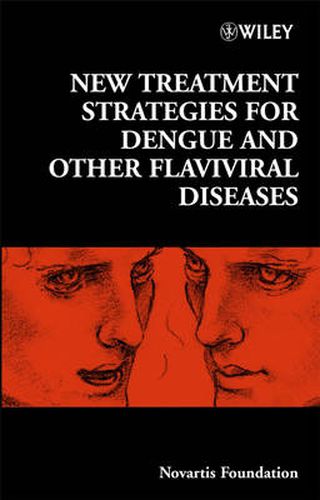Readings Newsletter
Become a Readings Member to make your shopping experience even easier.
Sign in or sign up for free!
You’re not far away from qualifying for FREE standard shipping within Australia
You’ve qualified for FREE standard shipping within Australia
The cart is loading…






Dengue virus is a member of the Flaviviridae family, which includes viruses associated with human diseases such as yellow fever, Japanese encephalitis and hepatitis C. Dengue fever is transmitted by mosquitoes, principally Aedes aegypti. There are four serotypes of dengue virus, of which DENV-2 has been the most prevalent in many recent epidemics. Following primary infection, lifelong immunity develops, preventing repeated assault by the same serotype. However, the non-neutralizing antibodies from a previous infection or maternally acquired antibodies are thought to form complexes with a different serotype during a subsequent infection and cause dengue haemorrhagic fever/dengue shock syndrome, which can be fatal. There is no treatment or vaccine available today that can combat this emerging and uncontrolled disease. This book features contributions from the world’s leading researchers working on dengue and related flaviviruses who examine the current state of the art in the molecular biology of the dengue virus. Particular emphasis is placed on the structure and function of the virus and the targeting of virus proteins by potential antiviral agents. The pathogenesis of dengue and dengue haemorrhagic fever are discussed in detail, especially the target cells and the specific receptors on these cells, thereby developing a clear overview of host and viral factors that contribute to dengue haemorrhagic fever. Finally, the book reviews the therapeutic options, paying particular attention to ways in which vector, host and environment can play a critical role in the spread of this disease. With dengue fever and other emerging viral diseases becoming increasingly prevalent around the world, this book provides valuable insight into the virus that causes this disease and potential ways to manage it. It is essential reading for all those working in tropical diseases, public health and virology. Praise from the reviews: The book provides an excellent summary of dengue/flavivirus research and is important for individuals and institutions interested in emerging infectious diseases. MICROBIOLOGY TODAY
$9.00 standard shipping within Australia
FREE standard shipping within Australia for orders over $100.00
Express & International shipping calculated at checkout
Dengue virus is a member of the Flaviviridae family, which includes viruses associated with human diseases such as yellow fever, Japanese encephalitis and hepatitis C. Dengue fever is transmitted by mosquitoes, principally Aedes aegypti. There are four serotypes of dengue virus, of which DENV-2 has been the most prevalent in many recent epidemics. Following primary infection, lifelong immunity develops, preventing repeated assault by the same serotype. However, the non-neutralizing antibodies from a previous infection or maternally acquired antibodies are thought to form complexes with a different serotype during a subsequent infection and cause dengue haemorrhagic fever/dengue shock syndrome, which can be fatal. There is no treatment or vaccine available today that can combat this emerging and uncontrolled disease. This book features contributions from the world’s leading researchers working on dengue and related flaviviruses who examine the current state of the art in the molecular biology of the dengue virus. Particular emphasis is placed on the structure and function of the virus and the targeting of virus proteins by potential antiviral agents. The pathogenesis of dengue and dengue haemorrhagic fever are discussed in detail, especially the target cells and the specific receptors on these cells, thereby developing a clear overview of host and viral factors that contribute to dengue haemorrhagic fever. Finally, the book reviews the therapeutic options, paying particular attention to ways in which vector, host and environment can play a critical role in the spread of this disease. With dengue fever and other emerging viral diseases becoming increasingly prevalent around the world, this book provides valuable insight into the virus that causes this disease and potential ways to manage it. It is essential reading for all those working in tropical diseases, public health and virology. Praise from the reviews: The book provides an excellent summary of dengue/flavivirus research and is important for individuals and institutions interested in emerging infectious diseases. MICROBIOLOGY TODAY